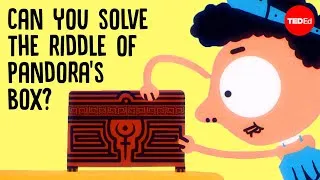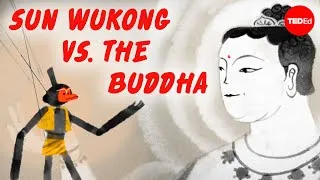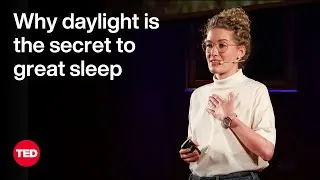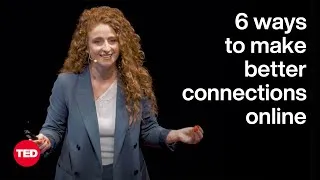請雙擊下方英文字幕播放視頻。
譯者: Yi-Ping Cho (Marssi)
審譯者: Regina Chu
00:06
In a study in the 1990s,
0
6545
2440
1990 年代有項研究
00:08
participants recalled getting lost
in a shopping mall as children.
1
8985
4902
要求受試者回想自己小時候
在購物中心走失的情況。
00:13
Some shared these memories
in vivid detail—
2
13887
3320
有些人生動描述回憶的細節,
00:17
one even remembered that the old man
who rescued him
3
17207
3680
有一位甚至記得拯救他的老人
00:20
was wearing a flannel shirt.
4
20887
2976
身穿著法蘭絨襯衫。
00:23
But none of these people
had actually gotten lost in a mall.
5
23863
4285
但這些受試者
其實都未曾在購物中心走失。
00:28
They produced these false memories
6
28148
2230
他們會製造出這些錯誤的記憶,
00:30
when the psychologists conducting
the study told them they’d gotten lost,
7
30378
4718
是因為做這個研究的心理師
說他們曾經走失,
00:35
and although they might not remember
the incident,
8
35096
2600
雖然他們可能不記得這起意外,
00:37
their parents had confirmed it.
9
37696
2760
但他們的父母已經證實此事。
00:40
And it wasn’t just one or two people
who thought they remembered getting lost—
10
40456
4855
認為自己記得走失的
不只有一兩個人,
00:45
a quarter of the participants did.
11
45311
2850
25% 的受試者都記得這件事。
00:48
These findings may sound unbelievable,
12
48161
2760
這些研究結果聽起來讓人難以置信,
00:50
but they actually reflect
a very common experience.
13
50921
3650
但其實反應出很相似的經驗:
00:54
Our memories are sometimes unreliable.
14
54571
3250
我們的記憶有時候不太可靠。
00:57
And though we still don’t know precisely
what causes this fallibility
15
57821
4000
雖然我們不太清楚在神經方面
是什麼造成這樣的謬誤,
01:01
on a neurological level,
16
61821
1770
01:03
research has highlighted some
of the most common ways our memories
17
63591
4000
研究點出造成我們的記憶
偏離事實的幾個常見原因。
01:07
diverge from what actually happened.
18
67591
3000
01:10
The mall study highlights how we can
incorporate information
19
70591
3840
「走失」這項研究指出我們是如何
01:14
from outside sources,
20
74431
1730
將外在資源的資訊
01:16
like other people or the news,
21
76161
2230
──像是他人言論或是新聞──
01:18
into our personal recollections
without realizing it.
22
78391
4175
融入我們的個人回憶,而毫無自覺。
01:22
This kind of suggestibility is just
one influence on our memories.
23
82566
4563
這種暗示只是影響
我們記憶的其中一種方式。
01:27
Take another study,
24
87129
1120
另一項研究中,
01:28
in which researchers briefly showed
a random collection of photographs
25
88249
4325
研究人員在短時間內
給受試者隨機看幾張照片,
01:32
to a group of participants,
26
92574
1600
01:34
including images of a university campus
none of them had ever visited.
27
94174
5643
其中有幾張照片
是他們未曾造訪的大學校園。
01:39
When shown the images three weeks later,
28
99817
2550
看過照片的三週後,
01:42
a majority of participants said
that they had probably or definitely
29
102367
4879
大部分的受試者說他們也許或一定
01:47
visited the campus in the past.
30
107246
2830
參觀過這個校園。
01:50
The participants misattributed information
from one context— an image they’d seen—
31
110076
5593
受試者錯把情境裡的資訊
──也就是他們見過的照片──
01:55
onto another— a memory of something
they believed they actually experienced.
32
115669
5398
放進另一個情境裡──
也就是他們印象中
自己經歷過的事件。
02:01
In another experiment, people were shown
an image of a magnifying glass,
33
121067
4478
在另一項實驗裡,
受試者看著放大鏡的照片,
02:05
and then told to imagine a lollipop.
34
125545
3520
但必須想像一支棒棒糖。
02:09
They frequently recalled that they saw
the magnifying glass and the lollipop.
35
129065
4929
他們不斷回想起
自己看到放大鏡和棒棒糖。
02:13
They struggled to link the objects
to the correct context—
36
133994
3470
對他們來說要把這兩樣東西
和事實湊起來非常難:
02:17
whether they actually saw them,
or simply imagined them.
37
137464
4000
他們不知道到底哪個是親眼所見,
哪個只是出於想像。
02:21
Another study, where a psychologist
questioned over 2,000 people
38
141464
4000
另一項研究中,
心理師詢問超過兩千人
02:25
on their views about the legalization
of marijuana,
39
145464
3580
對於大麻合法化的看法,
02:29
highlights yet another kind
of influence on memory.
40
149044
3450
點出影響記憶的另一種方式。
02:32
Participants answered questions
in 1973 and 1982.
41
152494
5968
受試者在 1973 和 1982 年
回答這個問題。
02:38
Those who said they had supported
marijuana legalization in 1973,
42
158462
4899
在 1973 年支持大麻合法化,
02:43
but reported they were against it in 1982,
43
163361
3480
但後來在 1982 年反對的人,
02:46
were more likely to recall that they were
actually against legalization in 1973—
44
166841
6561
較容易有自己 1973 年那時
其實也反對的印象,
02:53
bringing their old views in line
with their current ones.
45
173402
4388
好讓他們過去和現在的觀點能一致。
02:57
Our current opinions,
feelings, and experiences
46
177790
3130
我們現在的意見、感覺和經驗
03:00
can bias our memories
of how we felt in the past.
47
180920
4000
會誤導我們對過去感受的記憶。
03:04
In another study,
48
184920
1140
在另一項研究中,
03:06
researchers gave two groups
of participants background information
49
186060
4202
研究員給兩組受試者
史上一場戰爭的背景資訊,
03:10
on a historical war and asked them to rate
the likelihood that each side would win.
50
190262
6410
要求他們去評估
哪一邊比較可能會贏。
03:16
They gave each group the same information,
51
196672
2560
他們給兩組一樣的資訊,
03:19
except that they only told one group
who had actually won the war—
52
199232
4307
不過其中一組還得知誰贏了,
03:23
the other group didn’t know
the real world outcome.
53
203539
3600
另一組不知道戰爭結果。
03:27
In theory, both groups’ answers
should be similar,
54
207139
3410
理論上,兩組人的答案應該相近,
03:30
because the likelihood
of each side winning
55
210549
2290
因為哪邊會打贏的機率
03:32
isn’t effected by who actually won—
56
212839
2680
不受誰真的贏了影響,
03:35
if there’s a 20% chance of thunderstorms,
and a thunderstorm happens,
57
215519
4360
就像預報有雷雨的機率是 20%,
後來真的有雷雨,
03:39
the chance of thunderstorms
doesn’t retroactively go up to 100%.
58
219879
5097
雷雨的機率並不會
回到過去變成 100%。
03:44
Still, the group that knew
how the war ended
59
224976
3390
然而,知道戰爭怎麼結束的那組人
03:48
rated the winning side as more likely
to win than the group who did not.
60
228366
5590
比起另一組不知道的人
預測真正贏家打贏的機率比較高。
03:53
All of these fallibilities of memory
can have real-world impacts.
61
233956
4239
這些記憶的謬誤
都會在真實世界造成影響。
03:58
If police interrogations use leading
questions with eye witnesses or suspects,
62
238195
5307
像是如果警察用引導式問句
訊問證人或嫌犯,
04:03
suggestibility could result in incorrect
identifications or unreliable confessions.
63
243502
7311
其中的暗示就可能造成
錯誤指認或不可信的供認。
04:10
Even in the absence of leading questions,
64
250813
2580
即使沒有引導式問句,
04:13
misattribution can lead to inaccurate
eyewitness testimony.
65
253393
4382
錯誤歸因也可能造成
證人的證詞不正確。
04:17
In a courtroom,
66
257775
880
在法庭裡,
04:18
if a judge rules a piece of evidence
inadmissible
67
258655
3030
如果法官裁定不採信某個證據,
04:21
and tells jurors to disregard it,
they may not be able to do so.
68
261685
4578
並告訴陪審團無視此事,
他們還不見得辦得到。
04:26
In a medical setting, if a patient
seeks a second opinion
69
266263
3510
在醫療場所裡,如果病人詢求
第二位醫師的看法,
04:29
and the second physician is aware
of the first one’s diagnosis,
70
269773
4000
第二位醫師知道前一位的診斷,
04:33
that knowledge may bias their conclusion.
71
273773
3630
就可能會誤導他自己的推論。
04:37
Our memories are not ironclad
representations of reality,
72
277403
4000
我們的記憶並不見得會呈現事實,
04:41
but subjective perceptions.
73
281403
2350
而是會呈現我們的主觀感知。
04:43
And there’s not necessarily
anything wrong with that—
74
283753
2900
這件事不必然會有什麼問題,
04:46
the problems arise when we treat
memory as fact,
75
286653
4000
問題是當我們把記憶當做真相,
04:50
rather than accepting
this fundamental truth
76
290653
2370
而不接受這個根本事實:
04:53
about the nature of our recollections.
77
293023
3040
我們的回憶有其天性。
New videos
關於本網站
本網站將向您介紹對學習英語有用的 YouTube 視頻。 您將看到來自世界各地的一流教師教授的英語課程。 雙擊每個視頻頁面上顯示的英文字幕,從那裡播放視頻。 字幕與視頻播放同步滾動。 如果您有任何意見或要求,請使用此聯繫表與我們聯繫。







